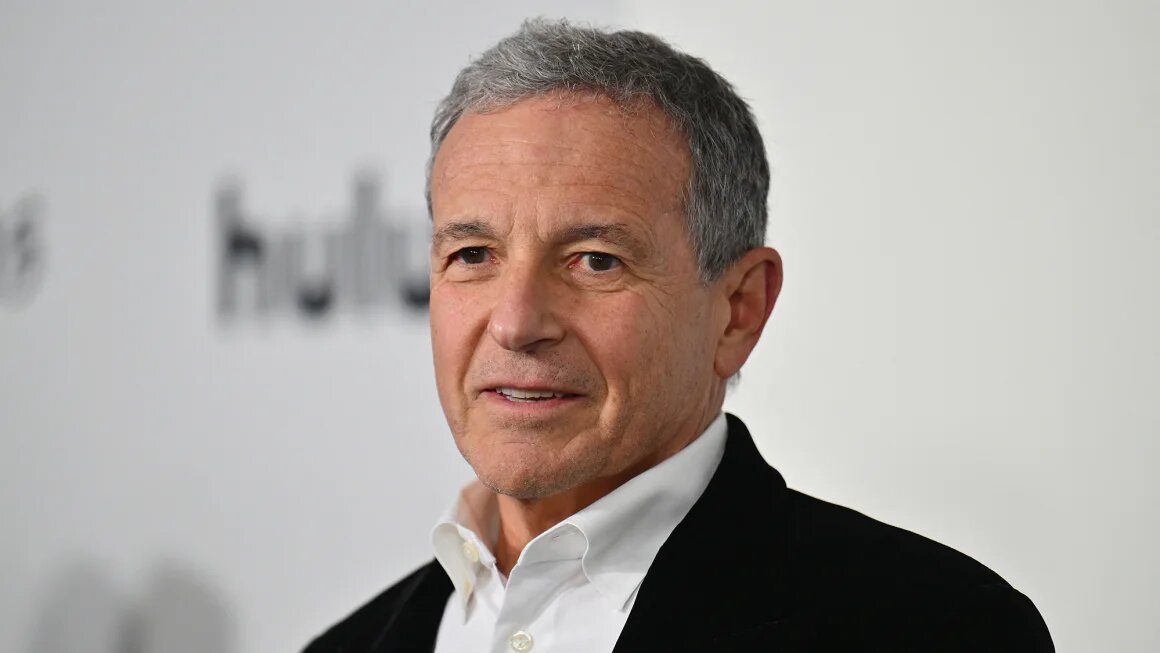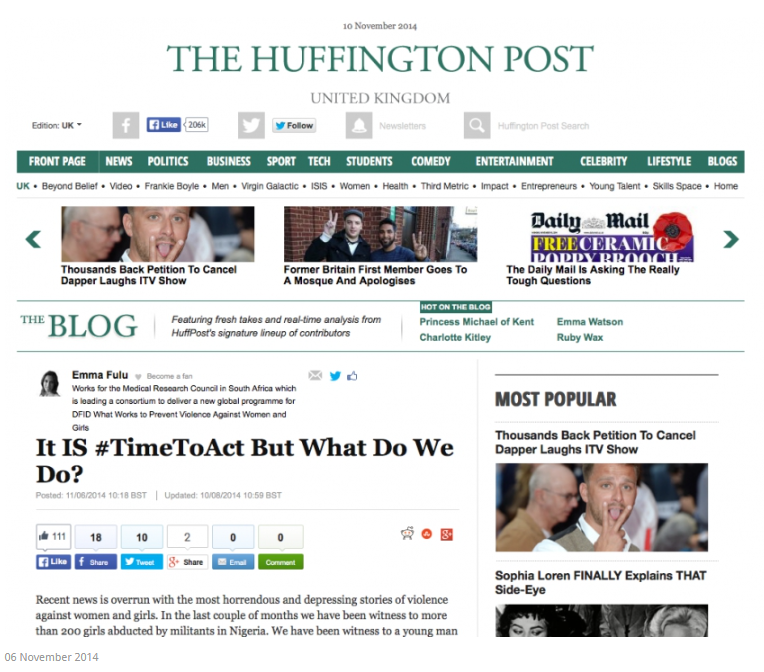Business
Disney Secures Decisive Victory Against Activist Shareholders, Marking a Significant Triumph for Bob Iger
Published
2 years agoon

Disney defeated a group of activist investors who fought for seats on the company’s board of directors in a fierce proxy war. For CEO Bob Iger, the shareholder vote was a win that would define his legacy.
Disney’s board defeated Trian Fund Management and Blackwells Capital’s nominees at its annual shareholder meeting by what the corporation described as “a substantial margin.”
Even though Disney’s stock has increased by almost 50% over the last six months, some investors, such as Blackwells Capital and Trian, had anticipated stronger returns and a more significant upheaval within the House of Mouse. Trian’s main goals were to increase the company’s profit margin, reestablish Disney’s supremacy at the box office, and match important executives’ compensation to their performance.
According to someone acquainted with the vote total, Iger defeated Trian’s Nelson Peltz and outclassed him.
The source claims Peltz’s bid for a board position garnered less than one-third of the vote or roughly 31%. According to the individual, Peltz’s bid was also lost by a significant margin by Jay Rasulo, the former head of Disney finance.
Retail investors, who own around 35% of Disney stock, cast 75% of the votes in favor of Disney’s candidates. Nevertheless, board members usually receive far larger totals than 75% of the vote, indicating that Peltz managed to garner some significant interest from regular investors.
Peltz invested a significant amount of money in the fight, thus it was unexpected that he didn’t come close to securing a board position.
“This is by far Peltz’s biggest setback in a proxy battle,” the vote-takers said.
In a statement following its loss, Trian expressed its disappointment with the result but expressed gratitude for “the support and dialogue we have had with Disney stakeholders.”
The statement stated, “We are proud of the impact we have had in refocusing this company on value creation and good governance.” “We’ll be keeping an eye on the company’s performance and its sustained success.”
Peltz’s campaign was fueled by his expression of political differences with Iger. Peltz attacked “The Marvels” and “Black Panther” films in a recent interview with the Financial Times for allegedly promoting what Republicans frequently refer to as a “woke” ideology.
“Why must I own an all-female Marvel team? It’s not that I’m against women, but why must I do it? Why am I not able to own Marvels who are both? Why is an all-black cast necessary? Peltz informed the Financial Times.
Disney is still one of the world’s most prosperous media conglomerates, but in recent years, several areas of its empire have faltered.
Many of its issues stem from the responsibilities of managing a large-scale media company in the 2020s: While streaming services, the potential alternative for linear TV, are burning through cash, the once-lucrative tent pole of linear TV is collapsing quickly. Aside from the negative effects of rising interest rates, moviegoers have been disenchanted with Disney’s more recent Marvel sequels and spinoffs.
“In a few aspects, the difficulties surpass my expectations,” Iger stated in a CNBC interview from the previous year.
A costly struggle for the board, Peltz and other shareholders have taken advantage of such blunders to mobilize support for reform. In a regulatory filing, Trian Partners stated that it anticipated spending roughly $25 million on its board seat campaign.
Iger’s standing as one of Hollywood’s most powerful figures would have taken a serious hit if the Trian group had been successful in obtaining board seats. Furthermore, it would have given the activists the chance to influence or thwart Iger’s plans for the corporate turnaround.
However, it was unclear how Peltz’s strategy, which essentially entailed increasing profit and linking CEO compensation to output, would differ significantly from Iger’s current practices.
A year prior, Iger declared he was going to pursue a restructuring plan to revitalize Disney’s key creative divisions while also laying off 7,000 employees.
Early indications point to the success of his turnaround strategy. Disney shocked investors in February when it revealed its first-quarter earnings and that it would increase earnings per share by 20% this year.
Iger probably has some time to concentrate on the expansion stage of his strategy now that he has repelled Peltz and Trian, at least until his contract expires in 2026, at which point he has pledged to stand away. The conflict, according to a former Disney official, is far from ended.
In an honest interview before the vote, the former executive said, “The fact that it has gotten this much traction tells you that there is a lot of dissatisfaction.”
Sahil Sachdeva is the CEO of Level Up Holdings, a Personal Branding agency. He creates elite personal brands through social media growth and top tier press features.

You may like
Business
How to Get Featured in Huffington Post: A Complete Guide for Aspiring Writers and Brands
Published
15 hours agoon
February 24, 2026
In today’s digital age, being featured in a prestigious publication can be a game-changer for your personal brand or business. Among the most influential media outlets, Huffington Post stands out as a platform that can amplify your reach exponentially. But how do you get noticed by their editorial team? In this guide, we’ll explore actionable strategies to help you get featured in Huffington Post while maximizing your online visibility and authority.
Why You Should Aim to Get Featured in Huffington Post
The Huffington Post has built a reputation as a trusted source for news, opinion pieces, and lifestyle content. Being featured here isn’t just about bragging rights—it’s about credibility. When your content appears on HuffPost, it signals to your audience that your insights are valuable, trustworthy, and worth sharing.
Moreover, exposure on a platform with millions of monthly visitors can drive significant traffic to your website or social media channels. Whether you’re an entrepreneur, influencer, or thought leader, this kind of publicity can accelerate growth in ways that other marketing tactics may not.
Understanding the Content That Gets Featured in Huffington Post
Before you even think about pitching, it’s crucial to understand the type of content HuffPost publishes. The publication looks for articles that are:
- Newsworthy – Topics that are timely, relevant, and have a broad appeal.
- Engaging – Stories that captivate readers, spark conversation, or inspire action.
- Authentic – Personal narratives and unique perspectives often outperform generic content.
- Well-Researched – Credible sources, data, and insightful commentary make your submission stronger.
Knowing this helps you craft pitches or articles that align with HuffPost’s editorial standards, improving your chances of getting accepted.
Step-by-Step Guide to Get Featured in Huffington Post
- Identify the Right Section
HuffPost has multiple sections ranging from lifestyle and health to business and politics. Research which section aligns best with your expertise. Tailoring your pitch to a specific editor or section demonstrates that you’ve done your homework and increases your chances of being noticed.
- Build a Strong Online Presence
Editors are more likely to feature contributors who already have a professional online presence. Maintain an active blog, LinkedIn profile, or social media accounts where you showcase your knowledge. This not only demonstrates credibility but also ensures that readers can find and engage with your work beyond HuffPost.
- Craft a Compelling Pitch
When reaching out to HuffPost editors, your pitch should be concise, persuasive, and tailored to the publication’s audience. A strong pitch includes:
- A catchy subject line that grabs attention.
- A clear explanation of your article idea and why it matters.
- A brief background about yourself establishing authority on the topic.
- Links to previous work or relevant articles to showcase your writing style.
Avoid generic or mass emails. Personalized pitches show that you value the editor’s time and understand their readership.
- Leverage Guest Blogging Opportunities
HuffPost previously allowed contributors to register and submit articles directly, but in recent years, the process has become more selective. Partnering with sites that have existing relationships with HuffPost can open doors. High-quality guest posts on reputable sites can attract editor attention and pave the way to get featured in Huffington Post.
- Network with Industry Influencers
Networking is often overlooked but highly effective. Attend conferences, webinars, and industry events where editors or contributors might be present. Engaging meaningfully with professionals in your niche increases your visibility and makes it easier for your pitch to land successfully.
- Optimize Your Content for SEO
Even when your goal is to be featured on a major publication, your content should still be optimized for search engines. Using relevant keywords naturally, structuring your article with subheadings, and including meta descriptions all enhance the discoverability of your piece. Editors appreciate contributors who understand both storytelling and digital marketing.
Common Mistakes to Avoid
While aiming to get featured in Huffington Post, avoid these pitfalls:
- Being too promotional – HuffPost favors informative and insightful content over blatant marketing pitches.
- Ignoring submission guidelines – Each section has specific requirements; ignoring them reduces your chances significantly.
- Sending generic pitches – Editors are busy; a generic message is often deleted without a second glance.
- Neglecting editing – Poor grammar or lack of proofreading can overshadow even the most brilliant idea.
By steering clear of these mistakes, you position yourself as a professional contributor worth the editor’s time.
Benefits Beyond Publication
Getting published on HuffPost isn’t just a one-time win. The exposure brings long-term benefits:
- Increased credibility – Your name becomes associated with a leading media outlet.
- Higher search rankings – Backlinks from HuffPost can improve your website’s SEO.
- Networking opportunities – Connections with other writers, editors, and influencers in your field.
- Business growth – More visibility can lead to collaborations, partnerships, and client inquiries.
These advantages make the effort to get featured in Huffington Post more than worthwhile.
Final Thoughts: How to Get Featured in Huffington Post & Boost Your Reach
The journey to being featured in HuffPost is competitive but achievable. By understanding the editorial focus, crafting a compelling pitch, maintaining a professional online presence, and leveraging networking opportunities, you significantly improve your chances. Remember, persistence matters—rejection is not a failure but a learning step toward eventual success.
Publishing on HuffPost can transform your visibility and authority in your niche. Every well-prepared pitch, insightful article, or thoughtful connection brings you closer to achieving that coveted feature. With dedication, strategy, and a clear understanding of what editors are looking for, your story could soon reach millions of readers around the globe.
Your journey starts today—refine your pitch, polish your content, and take the steps necessary to get featured in Huffington Post. The opportunity to amplify your voice and grow your influence is within reach.
Business
Stop Building Features. Start Building Infrastructure.
Published
17 hours agoon
February 24, 2026
Most founders build features.
The best founders build infrastructure.
Before Banu, we were operators. Our team closed over $600M in commercial real estate transactions and financed more than $100M in deals. We weren’t trying to build software.
We were trying to fix our workflow.
The real bottleneck wasn’t capital.
It wasn’t underwriting.
It wasn’t a competition.
It was reach.
Outbound Determines Growth
Modern sales stacks exploded into dozens of tools:
- Data vendors.
- CRMs.
- Email platforms.
- SMS systems.
- Dialers.
- AI add-ons.
Feature inflation created fragmentation.
Fragmentation created inefficiency.
Inefficiency created revenue drag.
So instead of building another feature, we built infrastructure.
Banu combines:
- 185M+ verified contact records
- Nationwide property and business owner data
- Built-in CRM
- Integrated email, SMS, phone, and direct mail
- Unified automation engine
- Zero integrations required
This is not a lead tool.
It is a system of record for outbound.
The Bigger Opportunity
More than 5 million professionals across real estate, mortgage, insurance, and financial services rely on outbound to survive and grow.
If you increase productivity per professional even marginally, the economic impact is enormous.
Infrastructure scales.
Fragmentation stalls.
When you consolidate the stack, you don’t just simplify the workflow.
You increase velocity.
Velocity compounds into revenue.
Revenue compounds into leverage.
The companies that win the next decade won’t build more tools.
They’ll rebuild the foundation.
Banu is free to try at www.banu.ai.
Business
How to Get Featured in The Guardian: A Practical Guide to Earning National Media Coverage
Published
2 days agoon
February 23, 2026
If you’re an entrepreneur, founder, author, or marketing professional, you’ve probably wondered how to Get Featured in The Guardian and other top-tier publications. National media coverage isn’t just about vanity—it builds credibility, drives traffic, attracts partnerships, and positions you as a trusted authority in your industry.
But landing coverage in a globally respected newspaper doesn’t happen by accident. It requires strategy, timing, and a strong understanding of what journalists actually want. In this guide, you’ll learn actionable steps you can take to dramatically improve your chances of securing meaningful press coverage.
Why Get Featured in The Guardian Matters for Your Brand
Securing a feature in a major publication instantly elevates your reputation. When you get quoted or profiled in a respected outlet, your audience perceives you differently. You’re no longer just promoting yourself—you’ve been validated by an independent and credible source.
Here’s why media coverage at this level is so powerful:
- Instant Credibility and Authority
Being associated with a trusted newspaper enhances your brand image overnight. Potential clients, investors, and partners are more likely to take you seriously.
- High-Quality Traffic
Online articles can drive thousands of readers to your website. Unlike paid ads, this traffic often converts better because it comes from trust-based exposure.
- Long-Term SEO Benefits
Media backlinks from authoritative domains significantly improve your search engine rankings. Over time, this strengthens your overall digital presence.
- Social Proof That Compounds
Once you’ve been featured, you can showcase it on your website, social media, sales pages, and email signatures—amplifying its impact for years.
When done strategically, the decision to pursue media coverage becomes a long-term brand investment, not just a publicity stunt.
Proven Strategies to Get Featured in The Guardian
If you want to Get Featured in The Guardian, you need more than a good product or service. Journalists are not looking for advertisements—they’re looking for compelling stories that resonate with their readers.
Here are proven strategies that increase your chances of success:
- Develop a Strong News Angle
Reporters care about what’s new, relevant, or timely. Ask yourself:
- Is there a trend you’re tapping into?
- Do you have data or research that supports a bigger narrative?
- Are you responding to a current issue or public debate?
A strong angle connects your expertise to a broader social, economic, or cultural conversation.
- Understand the Right Section
Before pitching, research where your story fits. Is it business, technology, lifestyle, opinion, or environment? Study recent articles in that section and look at:
- Writing tone
- Story structure
- Types of sources quoted
- Headline style
If you want to Get Featured in The Guardian, your pitch must feel like a natural extension of content they already publish.
- Craft a Personalized Pitch
Avoid mass emails. Journalists can spot generic pitches immediately.
A strong pitch should include:
- A compelling subject line
- A concise explanation of why the story matters now
- Supporting data or unique insights
- A short bio establishing credibility
Keep it clear and direct. Long-winded emails often get ignored.
- Offer Real Value, Not Promotion
One of the biggest mistakes people make is pitching themselves instead of pitching a story. Your goal is not to sell—it’s to inform, educate, or inspire readers.
Provide:
- Original research
- Contrarian viewpoints
- Expert commentary
- Case studies or personal experiences
Journalists are more likely to respond when they see genuine value for their audience.
- Build Relationships Before You Pitch
Engage with journalists on social media. Share their articles. Leave thoughtful comments. Show that you understand their work.
Relationship-building increases familiarity, and familiarity increases response rates.
Common Mistakes to Avoid When Trying to Get Featured in The Guardian
Even highly successful professionals struggle with media outreach because they make avoidable errors. If you’re serious about your PR strategy, watch out for these pitfalls.
- Making It All About You
Editors are focused on readers. If your pitch centers solely on your achievements, it’s unlikely to gain traction. Shift the narrative from “Look at me” to “Here’s why this matters.”
- Ignoring Timing
Timing can make or break your story. A pitch tied to a trending topic or current event has a much higher chance of being accepted.
For example, launching a sustainability initiative is more compelling if it aligns with global climate discussions or policy updates.
- Sending Attachments Without Context
Never attach large files without explanation. Instead, summarize your story in the email and offer additional materials upon request.
- Giving Up Too Soon
Media outreach is a numbers game. One rejection doesn’t mean your story isn’t strong. Sometimes it’s about timing, editorial calendars, or competing priorities.
Persistence—without being pushy—is key.
Long-Term Benefits When You Get Featured in The Guardian
The real power of media coverage unfolds over time. When you successfully Get Featured in The Guardian, the impact extends far beyond the initial publication date.
- Speaking Opportunities
Event organizers and conference hosts often look for speakers who have credible media exposure. A feature can open doors to keynote invitations and panel discussions.
- Partnership Requests
Brands prefer collaborating with businesses that have established authority. Media recognition signals trustworthiness and influence.
- Increased Investor Confidence
For startups, press coverage can improve investor perception. It demonstrates traction, relevance, and public interest.
- Enhanced Personal Brand
Whether you’re a founder or a thought leader, being featured strengthens your positioning. It separates you from competitors and builds long-term recognition.
Over time, one strong feature can lead to additional coverage in other publications, creating a ripple effect across your industry.
How to Strengthen Your Chances Even Further
While pitching directly can work, you can also improve your success rate through:
- Hiring a PR professional with media connections
- Publishing high-quality thought leadership on your own platform
- Building a strong LinkedIn presence
- Creating original research reports journalists can reference
Consistency matters. Media visibility is often the result of sustained effort rather than a single email.
Additionally, make sure your website and social channels are polished before pitching. If a journalist researches you, your digital presence should reinforce your credibility.
Final Thoughts: Turning Media Coverage into Momentum
Many professionals dream of national press coverage, but only a few approach it strategically. If your goal is to Get Featured in The Guardian, focus on delivering timely, relevant, and reader-centered stories rather than self-promotion.
Remember:
- Lead with value.
- Support your pitch with data.
- Personalize every outreach effort.
- Be patient and persistent.
Media success is rarely instant—but when it happens, it can transform your brand authority, search visibility, and growth trajectory.
Start by refining your story today. With the right angle and approach, your next email pitch could be the one that earns you a powerful and career-defining feature.
Business
Elevating Your Industry Authority: A Guide to Get Published in The Real Deal
Published
6 days agoon
February 19, 2026
In the high-stakes ecosystem of real estate, visibility is more than just a marketing metric—it is the ultimate form of professional currency. For developers, brokers, and PropTech innovators navigating the skylines of New York, Miami, or Los Angeles, there is one publication that serves as the definitive arbiter of success. It is the “Bible” of the trade, a journalistic powerhouse that dictates market sentiment and records the industry’s most pivotal moments. Naturally, for any ambitious professional, the ultimate milestone is to get published in The Real Deal.
However, landing a spot in these prestigious pages requires more than a standard press release. It demands a sophisticated understanding of the publication’s DNA and a commitment to providing high-level value to a discerning audience.
The Strategic Advantage to Get Published in The Real Deal
The Real Deal (TRD) is not a typical trade magazine; it is an investigative juggernaut that blends hard-hitting journalism with granular, data-driven insights. When you get published in The Real Deal, you aren’t just reaching a general audience; you are speaking directly to institutional investors, private equity titans, and the policymakers who shape urban development.
The benefits of a feature or a well-placed expert quote include:
- Institutional Credibility: A mention in TRD acts as a “seal of approval” from the industry’s most rigorous editors.
- Networking Leverage: High-profile features often lead to direct inquiries from potential partners and high-net-worth clients.
- SEO Dominance: TRD’s massive domain authority ensures that any mention of your name or firm will dominate search engine results for years to come.
Mastering the Editorial Pitch to Get Published in The Real Deal
Success in the media landscape is rarely accidental. To get published in The Real Deal, you must approach their editorial team with a “news-first” mindset. TRD reporters are famously diligent; they are not looking for promotional fluff or “advertorial” content. They are looking for the “why” behind the market trends.
- Lead with Proprietary Data
TRD has an insatiable appetite for numbers. Whether it is a breakdown of price-per-square-foot trends in a revitalizing neighborhood or an analysis of CMBS loan delinquencies, data is the fastest way to an editor’s heart. If you want to get published in The Real Deal, ensure your pitch is backed by unique research or a statistical angle that hasn’t been explored by competitors.
- Focus on “The Big Play”
While small residential closings are the lifeblood of many agencies, they rarely make the cut at TRD unless there is a celebrity angle or a record-shattering price point. Focus your outreach on large-scale acquisitions, significant legislative shifts, or innovative technological disruptions that have implications for the broader market.
Building Lasting Relationships to Get Published in The Real Deal
Publicity is a marathon, not a sprint. You don’t always need a massive “breaking news” story to start a dialogue with the editorial staff. Sometimes, the most effective way to get published in The Real Deal is to offer yourself as a reliable, objective source of information.
Pro Tip: Identify the specific “beat” reporters who cover your niche—be it retail, industrial, or luxury residential—and offer to provide “on-the-ground” context for stories they are already developing. By becoming a “source of record,” you increase the likelihood of being featured in future investigative deep dives.
Furthermore, pay close attention to the “Daily Dirt” and other TRD newsletters. Understanding what the editors are prioritizing on a daily basis allows you to align your personal or brand narrative with the current news cycle, making your contribution timely and indispensable.
Tailoring Your Narrative to Get Published in The Real Deal
Every publication has a specific “voice,” and TRD is known for being sharp, analytical, and occasionally irreverent. They excel at peeling back the curtain on the industry’s inner workings. If your goal is to get published in The Real Deal, avoid sterilized corporate jargon. Instead, offer a candid perspective on market challenges—such as the impact of fluctuating interest rates or the complexities of office-to-residential conversions.
The editorial team values three core pillars:
- Exclusivity: If you have a scoop, offering it to TRD first is a powerful incentive for coverage.
- Clarity: Get straight to the point of why your story matters to a national audience.
- Accuracy: In an era of misinformation, TRD prides itself on rigorous fact-checking. Ensuring your details are airtight is non-negotiable.
Final Thoughts
The path to media prominence in real estate is competitive, but for those who understand the nuances of the trade, it is entirely achievable. When you finally get published in The Real Deal, it marks a transition from being a mere participant in the market to being a leader of the global real estate conversation.
Business
Get Published in Mashable A Complete Guide to Securing High-Impact Tech Media Coverage
Published
6 days agoon
February 18, 2026
If your goal is to Get Published in Mashable, you’re aiming for one of the most recognized digital media platforms in the world. Known for covering technology, digital culture, startups, entertainment, and innovation, Mashable offers brands and entrepreneurs a powerful opportunity to gain global exposure. A feature here doesn’t just boost visibility—it strengthens credibility, builds authority, and positions you within influential digital conversations.
Whether you’re launching a startup, introducing new technology, or establishing yourself as a thought leader, understanding how to approach Mashable strategically can significantly increase your chances of success.
Why Mashable Is a Powerful Platform
Founded in 2005, Mashable has grown into a globally respected publication covering innovation, social media, business trends, gadgets, and cultural movements. Its audience includes tech enthusiasts, entrepreneurs, investors, and digitally connected consumers.
Being featured provides:
-
Global online visibility
-
Strong brand credibility
-
Enhanced investor confidence
-
Increased website traffic
-
SEO benefits from authoritative backlinks
Because Mashable focuses on digital innovation and cultural relevance, your story must offer real value—not just promotion.
What Mashable Editors Look For
Before pitching, it’s essential to understand the editorial mindset. Mashable prioritizes stories that are:
-
Innovative and forward-thinking
-
Data-driven or research-backed
-
Relevant to digital culture
-
Timely and newsworthy
-
Unique or disruptive
Editors receive countless pitches daily. To stand out, your story must provide a compelling angle that aligns with current trends or emerging technologies.
Step-by-Step Strategy to Get Published in Mashable
Securing coverage requires preparation and strategic positioning. Here’s how to approach the process effectively.
1. Develop a Newsworthy Angle
Mashable is not a promotional platform—it’s a news-driven publication. Ask yourself:
-
Is your product solving a major problem?
-
Does your startup offer a breakthrough innovation?
-
Is there data or research supporting your story?
-
Is your announcement tied to a trending topic?
Timing matters. Align your pitch with relevant industry developments to increase interest.
2. Build Credibility Before Pitching
Publications like Mashable are more likely to feature brands with existing traction. Strengthen your credibility by:
-
Gaining coverage in smaller media outlets
-
Growing your digital presence
-
Publishing thought leadership articles
-
Building an engaged online audience
Demonstrating authority and momentum makes your story more appealing.
3. Prepare a Compelling Media Kit
Your media kit should include:
-
A concise company overview
-
Founder bios
-
High-resolution images
-
Data or research highlights
-
Website and social media links
-
Previous press mentions
Professional presentation signals readiness for major media exposure.
4. Craft a Strong Pitch
When pitching, clarity and brevity are critical. Your email should:
-
Start with a compelling subject line
-
Introduce your story in one strong paragraph
-
Highlight why it matters now
-
Provide supporting data
-
Offer availability for interviews
Avoid exaggeration. Authenticity and factual accuracy are key to building trust with journalists.
5. Consider Strategic PR Support
Public relations professionals often have established relationships with media outlets. They understand editorial preferences and can position your story effectively. Working with experienced PR experts increases efficiency and improves your chances of securing meaningful placements.
Benefits of Getting Featured
When you successfully get published in Mashable, the impact can extend far beyond one article.
Increased Brand Authority
Being featured on a reputable tech platform elevates your credibility. Customers and investors view your brand as validated by a trusted media source.
Enhanced SEO Performance
High-authority backlinks from recognized publications can significantly improve search engine rankings.
Greater Investor and Partner Interest
Media validation often attracts venture capitalists, strategic partners, and collaboration opportunities.
Expanded Global Reach
Mashable’s international readership exposes your brand to audiences beyond your immediate market.
Common Mistakes to Avoid
Even strong brands can make errors when seeking media coverage.
Sending Generic Pitches
Mass emails lacking personalization are often ignored. Research the journalist’s recent articles and tailor your pitch accordingly.
Overly Promotional Language
Editors prioritize value for readers, not advertising copy. Focus on insight and impact.
Ignoring Timing
If your pitch isn’t tied to a relevant trend or news cycle, it may lack urgency.
Lack of Supporting Data
Claims without evidence reduce credibility. Provide measurable results, statistics, or proof points.
How to Strengthen Your Media Positioning
If you’re serious about securing coverage, adopt a long-term approach.
Establish Thought Leadership
Publish insightful content on LinkedIn, Medium, or industry blogs. Demonstrating expertise increases recognition.
Build Industry Relationships
Networking at tech events and conferences helps create media connections organically.
Leverage Social Proof
Customer testimonials, user growth numbers, and partnerships strengthen your brand story.
Stay Consistent
Media coverage often builds momentum. Each feature makes the next one easier to secure.
The Role of Timing in Media Success
Timing is one of the most overlooked factors in media outreach. Product launches, funding announcements, research studies, and industry events create natural news hooks. Aligning your pitch with these milestones significantly increases relevance.
Additionally, staying informed about current tech trends allows you to contribute expert commentary when journalists are seeking insights.
Beyond a Single Feature
While many brands focus on landing one high-profile placement, sustained media presence delivers stronger long-term benefits. Consistent storytelling across reputable platforms builds authority over time.
After a successful feature, amplify it across:
-
Social media channels
-
Email newsletters
-
Investor presentations
-
Website press sections
-
Marketing campaigns
This extends the value of your coverage and reinforces brand credibility.
Final Thoughts
To get published in Mashable is to position your brand at the forefront of digital innovation and cultural relevance. It requires strategic storytelling, newsworthy angles, professional presentation, and persistence. By focusing on authenticity, data-backed insights, and strong editorial alignment, you increase your chances of securing meaningful coverage. Media success doesn’t happen by chance—it’s built through preparation, credibility, and smart outreach.
Business
Get Published in Flaunt Magazine The Ultimate Guide to Elevating Your Brand
Published
6 days agoon
February 18, 2026
If you’re looking to Get Published in Flaunt Magazine, you’re aiming for more than just media coverage—you’re pursuing cultural credibility. Flaunt is known for blending fashion, art, film, music, and social commentary into visually striking editorial features. Being featured in this iconic publication positions your brand, personality, or creative project within a space that celebrates innovation and influence.
Whether you’re an entrepreneur, artist, model, designer, or public figure, securing a feature in Flaunt can significantly elevate your visibility and authority in creative industries. This guide explains how the process works and how to strategically position yourself for success.
Why Flaunt Magazine Matters
Founded in 1998, Flaunt Magazine has built a reputation as a trend-forward publication that spotlights culture shapers and boundary-pushing creatives. Its audience includes tastemakers, industry insiders, artists, and globally connected readers who value originality and bold storytelling.
Unlike traditional business magazines, Flaunt focuses on aesthetic storytelling and cultural depth. That means your feature must offer more than credentials—it must tell a compelling story that resonates with its artistic and socially aware audience.
Being featured in Flaunt can:
-
Strengthen your cultural credibility
-
Increase brand recognition
-
Enhance your public image
-
Open doors to collaborations and partnerships
-
Expand your reach in creative markets
Understanding What Flaunt Looks For
Before pitching your story, it’s important to understand the editorial style. Flaunt highlights:
-
Visionary creatives and innovators
-
Emerging and established artists
-
Fashion-forward entrepreneurs
-
Influential public figures
-
Cultural disruptors and thought leaders
Your story should align with themes of creativity, authenticity, and forward-thinking influence. Simply having a successful business may not be enough—the narrative must connect to art, culture, or meaningful impact.
Steps to Get Published in Flaunt Magazine
Securing a feature requires preparation, positioning, and strategic outreach. Below are the essential steps.
1. Craft a Strong Personal or Brand Narrative
Your story is your most powerful asset. Editors want depth—what drives you, what sets you apart, and how your work contributes to cultural conversations.
Ask yourself:
-
What makes your journey unique?
-
How does your work influence your industry?
-
What values or movements does your brand represent?
A well-defined narrative increases the likelihood of capturing editorial interest.
2. Build Credibility Before Pitching
Publications like Flaunt often feature individuals who already have a strong public presence. This includes:
-
Previous media coverage
-
Industry recognition
-
Social influence
-
High-quality branding and visuals
Establishing authority through smaller or niche publications can strengthen your pitch.
3. Prepare High-Quality Visual Assets
Flaunt is visually driven. Professional photography, strong creative direction, and a cohesive aesthetic are critical. Editorial-quality images make your pitch more appealing and demonstrate readiness for a feature.
4. Develop a Strategic Pitch
When reaching out to editors, your pitch should be concise, compelling, and relevant. Include:
-
A strong subject line
-
A brief introduction
-
Your unique angle
-
Links to past features or portfolios
-
Professional media assets
Avoid generic pitches. Tailor your message to align with Flaunt’s current themes or editorial direction.
5. Consider Professional PR Support
Working with experienced public relations professionals can increase your chances of success. PR experts understand how to position stories, build relationships with editors, and present your brand in a way that aligns with publication standards.
Benefits of Getting Featured
When you successfully get published in Flaunt Magazine, the impact goes beyond a single article.
Elevated Brand Authority
A respected cultural publication adds prestige to your portfolio. This recognition enhances how clients, collaborators, and investors perceive your brand.
Expanded Audience Reach
Flaunt’s readership includes creatives, influencers, and global audiences. A feature introduces your story to new networks that align with artistic and cultural influence.
Long-Term Credibility
Media features remain valuable assets for years. They can be showcased on websites, press kits, social profiles, and investor presentations.
Increased Collaboration Opportunities
Visibility in a culturally respected platform often attracts partnership opportunities from brands and fellow creatives.
Common Mistakes to Avoid
Many aspiring contributors make errors that reduce their chances of being featured.
Pitching Without a Clear Angle
A vague or overly promotional pitch will likely be ignored. Focus on storytelling rather than sales.
Ignoring Editorial Style
Failing to research the publication’s voice and audience can weaken your proposal.
Submitting Low-Quality Visuals
Professional publications expect professional standards. Invest in strong imagery and presentation.
Being Impatient
Editorial calendars can be planned months in advance. Persistence and professionalism are essential.
Positioning Yourself for Long-Term Media Success
Even if your first attempt isn’t successful, the journey to get published in Flaunt Magazine builds valuable experience. Continue strengthening your brand presence, expanding your media portfolio, and refining your narrative.
Media success is cumulative. Each feature enhances credibility, making future placements easier to secure. Consistent branding, strong storytelling, and strategic outreach create momentum over time.
Final Thoughts
To get published in Flaunt Magazine is to align your brand with a publication that celebrates culture, creativity, and innovation. It requires preparation, authenticity, and a compelling story that resonates with its audience.
By developing a strong narrative, building credibility, presenting high-quality visuals, and approaching outreach strategically, you significantly increase your chances of securing a feature. Whether you’re an artist, entrepreneur, or creative visionary, the right positioning can transform your media presence and open doors to meaningful opportunities.
Business
Who Really Pays for Luxury? Inside the Lives of India’s Artisans and the Fight for Fairness by Couture Brand Aksstagga
Published
7 days agoon
February 18, 2026
The Indian fashion and clothing industry has enamored the world for centuries, and currently, India holds a 63% share of the global textile and garment market. However, there is a side to fashion that rarely makes it into lookbooks or glossy campaigns. We all talk about big fashion houses and designers, but we almost never talk about the most important section of the industry: the hands that make the clothes—the artisans.
Across India, thousands of artisans spend hours stitching, embroidering, dyeing, and finishing garments that eventually sell for prices they could never afford themselves. Traditional embroidery techniques like Chikankari and Zardozi require hundreds of hours per garment, depending on complexity, because each stitch is done by hand and cannot be rushed. A single lehenga panel can take nearly a month to complete, demanding patience, strength, and extraordinary precision. Many home-based artisans work irregular hours around household duties, which means their embroidery work often extends late into the night. Their labour sustains the industry. And yet, despite forming the backbone of India’s luxury and couture ecosystem, their houses remain underpaid, and their contribution remains hidden behind garments that travel far beyond the neighbourhoods where they were made.
This is not a problem limited to one craft or one region. Nor is it unique to a handful of brands. The uncomfortable truth is that much of the fashion ecosystem, luxury included, has been built on structures that vastly undervalue this unfathomable labour that the artisans provide to bring the designers’ art to life. Low wagesare justified by “market rates.” Long hours are absorbed into informal systems. Middle layers that dilute payment before it reaches the hands that actually do the work. These practices are normalised so deeply that they are rarely questioned, let alone challenged.

Anjali Singh Goel, founder and creative director of couture brand Aksstagga, knows this world intimately. Being in the garment industry for more than two decades before starting Aksstagga, she has navigated these networks herself, moving from center to center, home to home, trying to understand how work flowed and where it stopped. What she discovered over time was not only a lack of fairness but also corruption deeply ingrained in the industry culture.
“Boutiques and fashion houses often assume artisans are being paid because money is leaving the brand,” she says. “But somewhere between the brand and the worker, it gets stuck. And the person doing the work never sees what they deserve.”
In many cases, women artisans are restricted by geography and circumstance. Travel is not always an option. Work has to happen within their neighbourhoods, often inside their homes. This decentralized system is not something brands created; it exists because it has to. However, what brands do control is how they engage with it. And that is where most fail. Because work happens out of sight, it becomes easier to look away. Timelines remain rigid. Payments remain inconsistent. The burden of adjustment falls entirely on the artisan. When delays happen, they are blamed. When quality is exceptional, it is taken for granted.
Aksstagga operates within this same reality but refuses to treat it as inevitable. Anjali believes artists can only produce superior quality art when they can work unburdened from the stress of livelihoods, when their minds are free to be creative. She insists on paying among the highest rates she can sustain, even when margins tighten. She actively seeks out trustworthy intermediaries and managers, knowing that removing middle layers altogether is not always practical, but monitoring them is essential.
Moreover, at Aksstagga, timelines are shaped around real lives rather than factory schedules. Many artisans the brand works with are widows or primary earners, supporting entire households through their craft. So, Aksstagga makes sure that their work is flexible enough to fit around caregiving, health, and domestic responsibilities.
Equally important is what Aksstagga does not do. It does not take shortcuts to cut costs, such as using machines for the majority of the stitching and calling the cloth “handcrafted,” as many other brands do. Every single stitch on an Aksstagga design is crafted by hand and done by artisans employed by the company. It also does not pressure artisans to meet impossible targets in the name of speed. These choices may seem bare minimum, but unfortunately, most brands in the market don’t treat them as such.
“There is a lot that happens in this industry that people don’t want to talk about,” Anjali exclaims. “But pretending it doesn’t exist doesn’t protect anyone.”
Anjali is also clear that long-term change cannot come from brands alone. Systemic change requires government involvement, training centers, social security, fair wage benchmarks, insurance, and formal recognition of artisans as workers rather than informal labor. Initiatives like ODOP, which recognize Chikankari as a defining craft of Lucknow, are steps forward, but they need deeper implementation.
“If we want this craft to survive,” Anjali says, “the people behind it need more than appreciation; they need protection from exploitation.”
Real change, Anjali believes, is rarely glamorous. It happens through difficult conversations, honest accounting, and daily choices that are easy to compromise and harder to uphold. By centering artisans within its ethics and building systems that acknowledge their reality, Aksstagga offers a vision of luxury that holds everyone from designers to policymakers accountable.
Business
How to Get Featured in Business Insider Magazine and Boost Your Brand
Published
7 days agoon
February 18, 2026
In today’s competitive business world, visibility is everything. Entrepreneurs, startups, and even established brands are constantly looking for ways to amplify their presence. One of the most effective ways to do this is by getting media coverage in top-tier publications. Among these, Business Insider Magazine stands out as a credible platform that can elevate your brand to a global audience. This guide will walk you through how to get featured in Business Insider Magazine, why it matters, and strategies to increase your chances of being noticed.
Why You Should Aim to Get Featured in Business Insider Magazine
Before diving into the “how,” it’s important to understand the “why.” Business Insider Magazine is renowned for its focus on business trends, technology, finance, and entrepreneurship. Being featured in such a publication does more than give you credibility—it opens doors to new opportunities.
Here’s what being featured can do for your business:
- Increase Brand Authority – Being mentioned in a respected outlet instantly boosts trust among your target audience.
- Drive Website Traffic – A high-authority backlink from Business Insider can increase your site’s traffic and improve SEO.
- Attract Investors and Partners – Investors often look at media coverage as a sign of legitimacy.
- Reach a Global Audience – Business Insider has millions of readers worldwide, exposing your brand to new markets.
By understanding these benefits, you can see why so many companies strive to get featured in Business Insider Magazine.
Steps to Get Featured in Business Insider Magazine
Getting media coverage isn’t just about sending an email and hoping for the best. It requires a strategic approach. Here are some steps to increase your chances of being featured.
- Build a Strong Brand Presence
Before you pitch to any publication, your brand needs to stand out. This involves:
- Professional Website: Ensure your website is polished, easy to navigate, and has clear information about your products or services.
- Active Social Media: Engage consistently on LinkedIn, Twitter, and Instagram, as journalists often research social media activity before featuring a brand.
- Content Marketing: Publish insightful blog posts or thought leadership articles that demonstrate your expertise.
A strong digital footprint makes it easier for journalists to justify featuring your brand, and it increases your credibility, which is essential if you want to get featured in Business Insider Magazine.
- Identify Relevant Journalists and Editors
Business Insider has different sections ranging from tech and finance to lifestyle and leadership. To improve your chances:
- Research journalists who cover your industry.
- Follow them on social media to understand the topics they write about.
- Engage with their content by commenting and sharing insights.
By targeting the right editor or journalist, you can tailor your pitch and increase the likelihood of getting featured.
- Craft a Compelling Pitch
Your pitch is your first impression, so make it count. A compelling pitch should:
- Be concise and engaging. Journalists receive hundreds of pitches daily, so clarity is key.
- Highlight your unique story. What makes your brand different? Why is it newsworthy?
- Include supporting data or results. Numbers, case studies, or testimonials can make your story more persuasive.
Remember, the goal is to get featured in Business Insider Magazine, so your pitch should focus on what will interest their audience rather than simply promoting your product.
- Leverage PR Agencies or Media Platforms
If pitching directly feels daunting, working with PR professionals can be highly effective. PR agencies often have established relationships with media outlets, including Business Insider Magazine. They can help you:
- Develop a media strategy
- Craft a professional press release
- Connect with journalists directly
Investing in PR can significantly increase your chances of getting noticed by top-tier publications.
- Showcase Your Expertise Through Thought Leadership
Business Insider often features industry experts who provide insights on trends, innovations, or market developments. Position yourself as a thought leader by:
- Writing insightful articles for your own blog or LinkedIn
- Participating in industry webinars or podcasts
- Sharing original research or case studies
When you demonstrate your expertise, you naturally increase your chances to get featured in Business Insider Magazine.
Common Mistakes to Avoid When Trying to Get Featured in Business Insider Magazine
While it’s exciting to aim for media coverage, several pitfalls can reduce your chances:
- Generic Pitches: Avoid mass emailing journalists with a one-size-fits-all pitch. Personalized outreach is far more effective.
- Overly Promotional Content: Business Insider prefers stories that provide value, not direct advertisements. Focus on insights and newsworthiness.
- Ignoring Follow-ups: If you don’t get a response, a polite follow-up can make a difference. Persistence is key, but avoid being pushy.
By steering clear of these mistakes, your strategy to get featured in Business Insider Magazine will be much more effective.
Real-Life Examples of Brands That Benefited from Media Coverage
Seeing others succeed can be motivating. Brands that have been featured in Business Insider often experience a surge in visibility and credibility. For example:
- A tech startup shared its innovative solution in a feature article, leading to investor interest and a funding round.
- A lifestyle brand highlighted its sustainability efforts, which led to partnerships with eco-conscious retailers.
These examples demonstrate the tangible impact that being featured in a high-profile publication can have on your growth trajectory.
Tips to Maintain Long-Term Media Presence
Getting featured is just the first step. Maintaining your media presence ensures continued visibility:
- Consistently Share Updates: Keep journalists informed about new products, milestones, or industry insights.
- Engage With Media Coverage: Share your feature on social media and your website to amplify the reach.
- Network With Industry Experts: Build relationships with journalists and editors for future opportunities.
Sustained efforts increase your credibility and make it easier to get featured in Business Insider Magazine again in the future.
Conclusion
If you’re serious about growing your brand, aiming to get featured in Business Insider Magazine should be part of your strategy. It’s not just about recognition—it’s about credibility, audience growth, and business opportunities. By building a strong brand, targeting the right journalists, crafting compelling pitches, and positioning yourself as a thought leader, you can significantly improve your chances of being noticed.
Remember, media coverage is both an art and a strategy. With patience, persistence, and a well-crafted plan, you can secure a feature in one of the world’s most respected business publications and take your brand to new heights.
Business
How to Get Featured in People Magazine: A Complete, Real-World Guide
Published
1 week agoon
February 16, 2026
For entrepreneurs, authors, public figures, and changemakers, national media coverage is more than a vanity milestone—it’s a credibility accelerator. And when it comes to mainstream recognition, few platforms carry the cultural authority and reach of People Magazine.
To Get Featured in People Magazine is to instantly elevate your story in the eyes of millions. It signals trust. It builds influence. It opens doors that were previously closed.
But here’s the truth: it doesn’t happen by accident.
If you’ve ever wondered how to position yourself strategically and professionally to get national attention, this guide walks you through exactly what it takes to Get Featured in People Magazine, without hype or unrealistic promises.
Why So Many Brands Want to Get Featured in People Magazine
There’s a reason this publication remains one of the most recognizable media brands in America. With decades of trusted storytelling, celebrity coverage, and human-interest features, it has built a reputation for highlighting compelling journeys.
When you Get Featured in People Magazine, several things happen almost instantly:
- Your credibility increases overnight
- Your Google search results strengthen
- Social proof expands dramatically
- Speaking and partnership opportunities grow
- Brand trust accelerates
In today’s crowded digital world, trust is currency. A respected national feature gives you third-party validation that advertising simply cannot buy.
What It Really Takes to Get Featured in People Magazine
Let’s clear up a common misconception: editors are not looking for self-promotion. They’re looking for stories that resonate with their audience.
If you want to Get Featured in People Magazine, your story must check at least one of these boxes:
- Emotionally compelling
- Timely and relevant
- Culturally significant
- Inspirational or transformational
- Connected to a trending topic
The publication centers around people—not products. Even if you run a business, the human journey behind it matters more than revenue numbers.
Crafting a Pitch That Helps You Get Featured in People Magazine
A strong pitch is concise, clear, and emotionally engaging.
Here’s a simple structure you can follow:
- A Compelling Subject Line
Think like a headline writer. Make it intriguing, but truthful.
Example:
Former Teacher Builds National Nonprofit After Personal Loss
- A Powerful Opening Paragraph
In 3–5 sentences, summarize the heart of your story and why it matters now.
- The Human Angle
Explain the transformation, struggle, breakthrough, or impact.
- Why It Fits Their Audience
Show alignment with the type of stories they publish.
- Supporting Assets
Include professional photos, social links, previous media mentions, and contact information.
If your goal is to Get Featured in People Magazine, your pitch should feel like the beginning of a great article—not a sales email.
Build Authority Before You Try to Get Featured in People Magazine
Major publications rarely spotlight someone with zero digital footprint. Before pursuing national coverage, strengthen your foundation.
Here’s how:
- Appear on niche podcasts
- Publish guest articles
- Get quoted in industry blogs
- Grow a consistent social presence
- Clarify your brand message
Momentum attracts media. When editors see that others are already talking about you, it reduces perceived risk.
If you want to Get Featured in People Magazine, visibility at smaller levels often acts as a stepping stone.
Create a Newsworthy Moment
Sometimes the missing piece isn’t your story—it’s timing.
To improve your chances to Get Featured in People Magazine, consider creating a media hook:
- Launch a new initiative
- Partner with a recognizable brand
- Publish a book
- Host a large-scale event
- Announce research or data findings
- Tie your story to a national awareness month
Journalists respond to relevance. A fresh angle dramatically increases the likelihood of a response.
Using Public Relations to Get Featured in People Magazine
While it’s possible to pitch yourself, many individuals choose to work with experienced publicists. A skilled PR professional understands editorial calendars, relationships, and positioning.
They can help you:
- Refine your story angle
- Identify the right editor
- Pitch strategically
- Follow up professionally
- Prepare for interviews
If your budget allows, this can be a worthwhile investment. However, representation alone does not guarantee you will Get Featured in People Magazine. The story must still stand on its own.
Optimize Your Online Presence Before You Get Featured in People Magazine
Imagine an editor loves your pitch. The first thing they’ll do is research you.
What will they find?
Before seriously pursuing efforts to Get Featured in People Magazine, ensure you have:
- A professional website
- A polished bio
- Updated headshots
- Consistent social media branding
- Clear messaging about your impact
Your digital presence should reinforce your credibility, not raise questions.
Timing and Editorial Calendars Matter
Many national publications plan content months in advance. Understanding seasonal trends can give you a major advantage.
If you want to Get Featured in People Magazine, research:
- Holiday-themed issues
- Annual special editions
- Cultural heritage months
- Health and wellness seasons
- Awards cycles
Pitching at the right moment can make the difference between silence and serious consideration.
Persistence Is Part of the Process
Rejection—or no response at all—is normal in media outreach.
Even highly accomplished individuals pitch multiple times before they successfully Get Featured in People Magazine. Sometimes the angle needs refining. Sometimes the timing is off. Sometimes the inbox is simply full.
Follow up once or twice politely. If you don’t hear back, revisit your positioning and try again later with a stronger hook.
Professional persistence signals confidence—not desperation.
What Happens After You Get Featured in People Magazine?
Preparation matters just as much as the feature itself.
If you do Get Featured in People Magazine, maximize the exposure:
- Add the feature to your website press page
- Share it across social platforms
- Include it in email marketing
- Update your media bio
- Reference it in speaking pitches
National visibility is a powerful tool—but only if you leverage it properly.
The Mindset Required to Get Featured in People Magazine
Perhaps the most overlooked element is mindset.
Media recognition should be approached as a long-term strategy, not a quick win. Focus on impact, service, and storytelling—not ego.
People respond to authenticity. Editors can sense manufactured narratives instantly. The most powerful way to Get Featured in People Magazine is to share a story that is honest, vulnerable, and relevant.
When your work genuinely helps others, media coverage becomes a natural extension of that impact.
Final Thoughts: Is It Possible to Get Featured in People Magazine?
To Get Featured in People Magazine, you must think like both a storyteller and a strategist. Build credibility. Create relevance. Craft compelling pitches. Stay consistent.
National recognition isn’t reserved for celebrities alone. Entrepreneurs, advocates, small business owners, and everyday individuals with extraordinary journeys are featured every year.
The real question isn’t whether it’s possible.
The real question is:
Are you ready to position your story in a way that millions of readers can connect with?
Start refining your narrative today. With the right strategy and sustained effort, you can absolutely Get Featured in People Magazine—and use that spotlight to amplify the impact you’re here to make.
Business
How to Get Featured in Newsweek: A Complete Guide for Brands and Entrepreneurs
Published
1 week agoon
February 16, 2026
Many entrepreneurs, founders, and personal brands share one major PR goal: to Get Featured in Newsweek. Being highlighted in a globally recognized publication instantly elevates your credibility, authority, and visibility. But while the idea sounds glamorous, the path to earning that spotlight requires strategy, positioning, and patience.
If you’re serious about growing your reputation and reaching a wider audience, this guide will walk you through exactly what it takes.
Why Brands Want to Get Featured in Newsweek
There’s a reason ambitious professionals aim to Get Featured in Newsweek. Media exposure at this level acts as a powerful trust signal. When your name or company appears in a respected publication, people naturally perceive you as more authoritative and credible.
Here’s what that kind of feature can do for you:
- Strengthen your personal or corporate brand
- Increase inbound opportunities
- Build investor confidence
- Improve conversion rates
- Open doors to speaking engagements and partnerships
In today’s competitive digital landscape, attention is currency. High-level press coverage separates industry leaders from everyone else.
However, major publications don’t feature brands randomly. They tell stories that matter to their audience. That’s an important distinction many people overlook.
What It Really Takes to Get Featured in Newsweek
If your only strategy is sending a generic press release, it’s unlikely you’ll Get Featured in Newsweek. Editors and contributors receive hundreds—sometimes thousands—of pitches every week. To stand out, you need more than ambition. You need a compelling angle.
Here’s what truly matters:
- A Newsworthy Story
Publications don’t advertise businesses for free. They cover stories that are timely, relevant, and impactful. Ask yourself:
- Are you launching something innovative?
- Do you have unique data or research?
- Have you achieved something unusual or groundbreaking?
- Is your journey inspiring or socially relevant?
Your story must align with current trends or ongoing conversations in your industry.
- Clear Positioning
Journalists look for experts, not generalists. If you want to position yourself to Get Featured in Newsweek, you must clearly define your niche. The more specific your expertise, the easier it is for writers to frame your story.
For example:
- Not just “business coach” — but “leadership coach helping tech founders scale remote teams.”
- Not just “fitness trainer” — but “trainer specializing in metabolic recovery for busy executives.”
Specificity creates authority.
- Credibility Signals
Before featuring you, writers often verify your legitimacy. This includes:
- Professional website
- Media kit
- Social proof
- Prior press mentions
- Client testimonials
- Clear brand messaging
Your online presence should reinforce the story you’re pitching.
Proven Strategies to Get Featured in Newsweek
Now let’s talk about actionable steps. If your goal is to Get Featured in Newsweek, you need a proactive approach rather than wishful thinking.
Build Relationships, Not Just Pitches
One of the most effective ways to help you Get Featured in Newsweek is relationship-building. Follow journalists and contributors in your niche. Engage thoughtfully with their content. Understand the type of stories they write.
When you finally pitch, it won’t feel cold—it will feel relevant.
Craft a Strong Pitch
A strong pitch is concise, personalized, and value-driven. It should include:
- A compelling subject line
- A brief introduction
- A clear angle
- Why the story matters now
- Supporting data or proof
- Contact information
Avoid long-winded explanations. Editors appreciate clarity and directness.
Leverage Expert Commentary
Sometimes the fastest way to increase your chances to Get Featured in Newsweek is by offering expert commentary on trending topics. When major news breaks in your industry, position yourself as a source.
You can do this by:
- Publishing thought leadership on LinkedIn
- Responding quickly to media queries
- Providing unique insights backed by data
Timeliness is critical. News moves fast.
Use Strategic PR Support
If your budget allows, working with a PR professional can significantly streamline the process. Experienced publicists understand editorial standards, pitch formatting, and media timelines. They can refine your narrative and connect you with the right contributors.
While hiring help doesn’t guarantee coverage, it can increase efficiency and professionalism in your outreach.
Mistakes to Avoid When You Want to Get Featured in Newsweek
Even strong brands make errors that sabotage their goal to Get Featured in Newsweek. Avoid these common pitfalls:
Being Too Promotional
Editors are not looking for advertisements. If your pitch reads like a sales page, it will likely be ignored. Focus on storytelling, impact, and insights rather than features and pricing.
Ignoring Timing
Pitching holiday content in January or trend-based stories months too late reduces your relevance. Study editorial calendars and stay aware of what’s currently happening in your industry.
Sending Mass Emails
Generic, copy-paste emails are easy to spot. Personalization significantly increases response rates. Reference a recent article or explain why your story aligns with the writer’s beat.
Lacking a Clear Narrative
If your story doesn’t have a strong central theme, it becomes difficult to frame into an engaging article. Before pitching, summarize your idea in one powerful sentence. If it’s confusing, refine it.
Building Long-Term Media Visibility
While many people focus on a single big feature, sustainable media presence is more powerful. Consistent visibility builds authority over time.
To maintain momentum:
- Continue producing thought leadership content
- Strengthen your industry network
- Collect testimonials and case studies
- Document milestones and achievements
- Stay active in relevant conversations
Media recognition is often the result of cumulative credibility rather than one viral moment.
The Mindset Behind Media Success
If you truly want to Get Featured in Newsweek, understand that persistence plays a major role. Rejection is common. Silence is common. But so is eventual success for those who refine their approach.
Instead of asking, “Why haven’t I been featured yet?” ask:
- Is my story strong enough?
- Am I targeting the right angle?
- Am I delivering value to the publication’s audience?
- Have I built enough authority in my niche?
Media coverage is earned through positioning, preparation, and professionalism.
Final Thoughts
To Get Featured in Newsweek, you need more than a dream—you need strategy. Focus on crafting a compelling narrative, building real credibility, and approaching journalists with respect and clarity.
When you combine expertise, timing, and strong storytelling, media opportunities become far more accessible. Whether you pursue PR independently or with professional support, remember that high-level exposure is the result of intentional brand building.
Stay consistent. Refine your message. Lead with value.
And when the right story meets the right moment, your feature becomes not just possible—but inevitable.
Trending
-

 Health5 years ago
Health5 years agoEva Savagiou Finally Breaks Her Silence About Online Bullying On TikTok
-

 Health4 years ago
Health4 years agoTraumatone Returns With A New EP – Hereafter
-

 Health4 years ago
Health4 years agoTop 5 Influencers Accounts To Watch In 2022
-

 Fashion5 years ago
Fashion5 years agoThe Tattoo Heretic: Kirby van Beek’s Idea Of Shadow And Bone
-

 Fashion4 years ago
Fashion4 years agoNatalie Schramboeck – Influencing People Through A Cultural Touch
-

 Fashion9 years ago
Fashion9 years ago9 Celebrities who have spoken out about being photoshopped
-

 Health5 years ago
Health5 years agoBrooke Casey Inspiring People Through Her Message With Music
-

 Health5 years ago
Health5 years agoTop 12 Rising Artists To Watch In 2021
-

 Health5 years ago
Health5 years agoMadison Morton Is Swooning The World Through Her Soul-stirring Music
-

 Health4 years ago
Health4 years agoTop 10 Influencers To Follow This 2021
